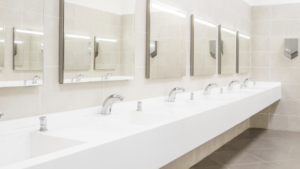
Steps to Winterize Your Plumbing 2021
Winter is one of the most difficult seasons of the year. The hardest aspect about winter is the dip in temperature to dangerously low levels. These very cold conditions are difficult not only for you, but also for some of the equipment in your house, states Plumbing company Appleton WI.
The plumbing in your home, for example, is one of the locations where very freezing temperatures may quickly cause harm. Given the significance of plumbing in your house, it’s critical to make sure it’s not damaged by the next winter.
Tureks Plumbing, Plumber Appleton WI, team recommends the following steps to winterize your plumbing.
5 Steps to Winterize Your Plumbing
Making sure your plumbing is ready for the extreme drop in temperatures is not only good for the continued supply of your water, but it also saves you the money you will spend hiring a plumber in Appleton, Wisconsin, for repairs.
Prepare Your Outside Faucets for the Winter
Plumbing maintenance Appleton WI advises that you drain anything that holds water, such as your swimming pool, sprinklers, outdoor taps, and cooling units. Turn off the water in valves and other items that aren’t going to be of use during winter. Hoses should also be drained and stored away for the winter.
Insulate Exposed Pipes
Fox Valley plumbers know that the cold will damage your pipes if left exposed for long. Find all your exposed pipes in places such as the garage, attic, and crawl spaces and make sure they are well insulated. You can use an insulation foam on the inside and outside of the pipes to protect them against prolonged freezing conditions. You can also use a towel or pool noodle instead of the insulation foam.
Another great form of insulation is the use of heat tape, which protects your pipes from freezing. Take great care when using heat tape though, as they have been known to cause fires. Make sure that your insulation is thorough because the cold can affect the gaps.
Drain Your Cooling Unit
It helps to drain your cooling unit of all water since you are not going to be using it during the cold season. Also, make sure to shut off all water valves in preparation for the winter.
Keep the Heat on When Traveling
If you are traveling for winter, leave your thermostat at about 55 degrees, advises St. Paul MN heating company, McQuillan Home Services. While it may not look economical since no one will be using the heat, you will be saving a lot of money in repair costs for frozen and damaged pipes.
Make sure to shut off the main water supply to your home and turn on all the taps to drain all the water from the pipes. You can use an air compressor to blow excess water out of the pipes. Taps should be left on.
Flush your toilets and remove as much water as possible from your home if you are not going to be spending the winter there. In instances where you can’t remove the water, such as in your toilet bowl, use antifreeze so that the water does not freeze and crack the toilet.
Fix any Cracks and Leaks
Cold air can see in through the cracks causing the pipes to freeze. Use caulking or spray foam to fix these cracks.
Making your plumbing winter-ready is an important part of maintaining your home. Make sure to do this before winter sets in. We provide 24/7 emergency plumbing services. Contact us today to learn about the additional home services we provide!
Editor’s note: This post was originally published in December, 2019 and has been completely revamped and updated for accuracy and comprehensiveness.



 A plumber is one of the most important people to work with during your home maintenance routines. Their work is to ensure that everything in your plumbing system flows smoothly, so to speak. They are usually the first people you call whenever you encounter issues such as clogs, leaks, and other assorted issues such as faulty water heaters.
A plumber is one of the most important people to work with during your home maintenance routines. Their work is to ensure that everything in your plumbing system flows smoothly, so to speak. They are usually the first people you call whenever you encounter issues such as clogs, leaks, and other assorted issues such as faulty water heaters.  Low water pressure is one of the most frustrating things a homeowner can experience. It slows you down and prevents you from carrying out your chores with the efficiency you are used to. Additionally, low water pressure can affect other aspects of your home, such as water heaters that require the water pressure to work.
Low water pressure is one of the most frustrating things a homeowner can experience. It slows you down and prevents you from carrying out your chores with the efficiency you are used to. Additionally, low water pressure can affect other aspects of your home, such as water heaters that require the water pressure to work.